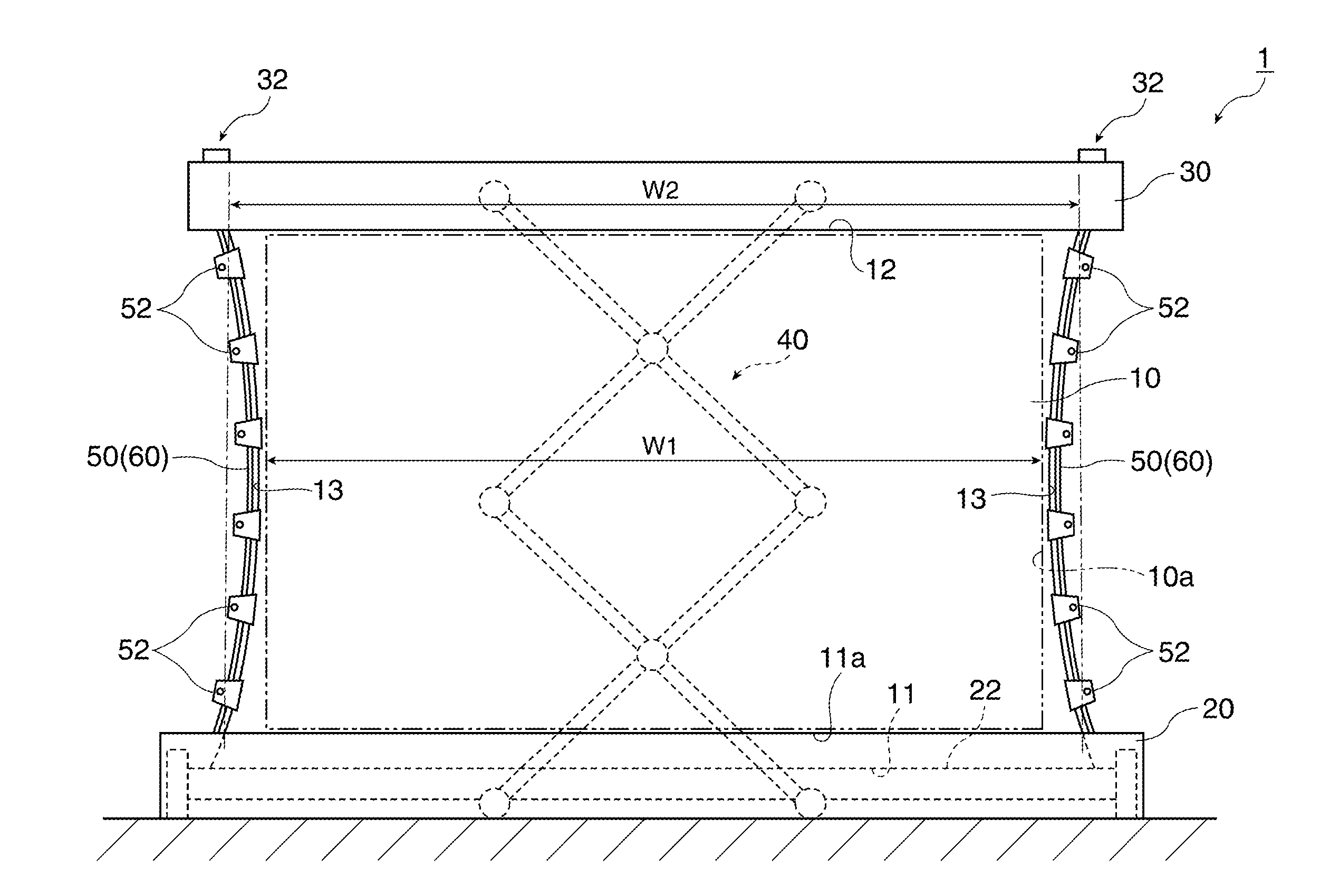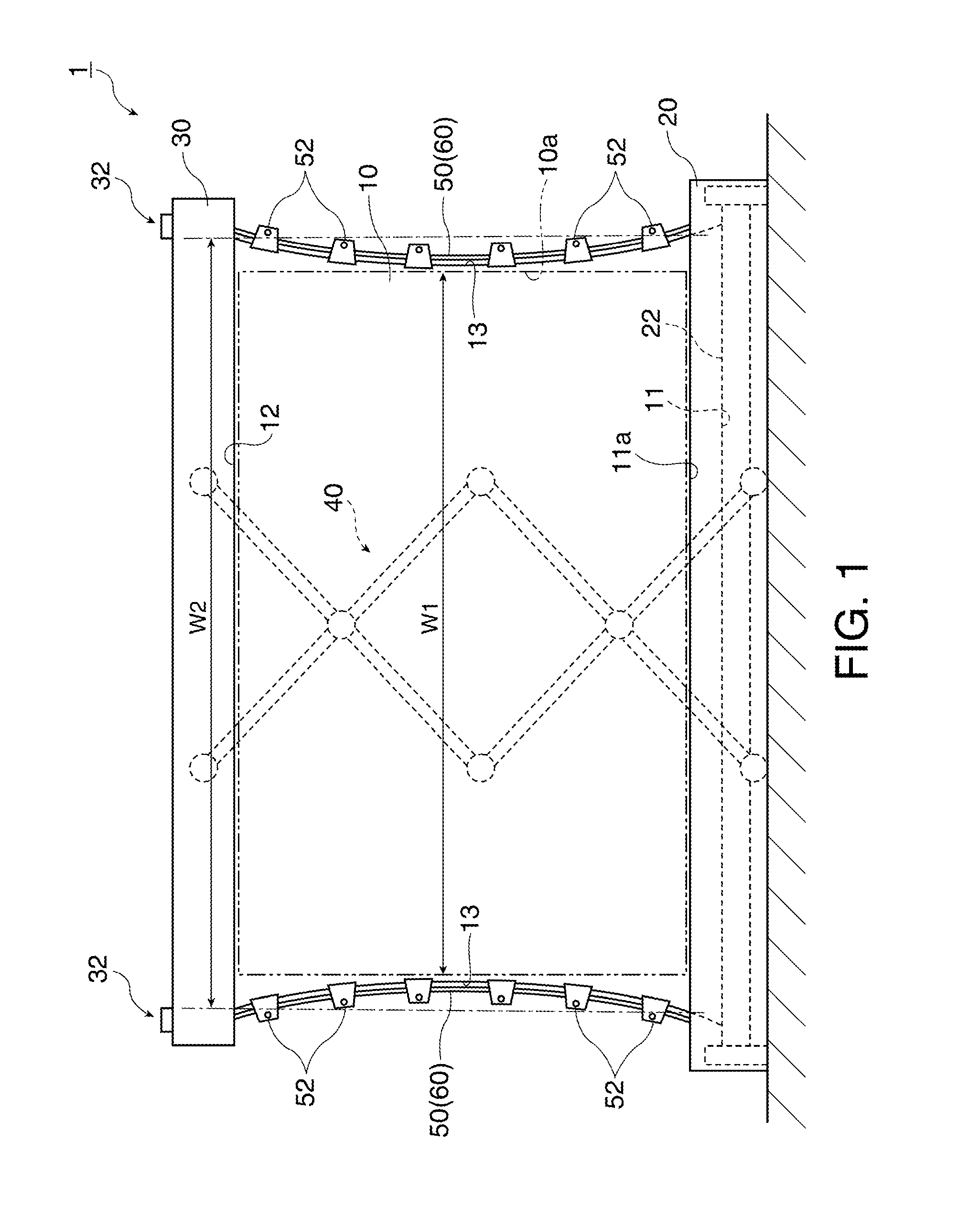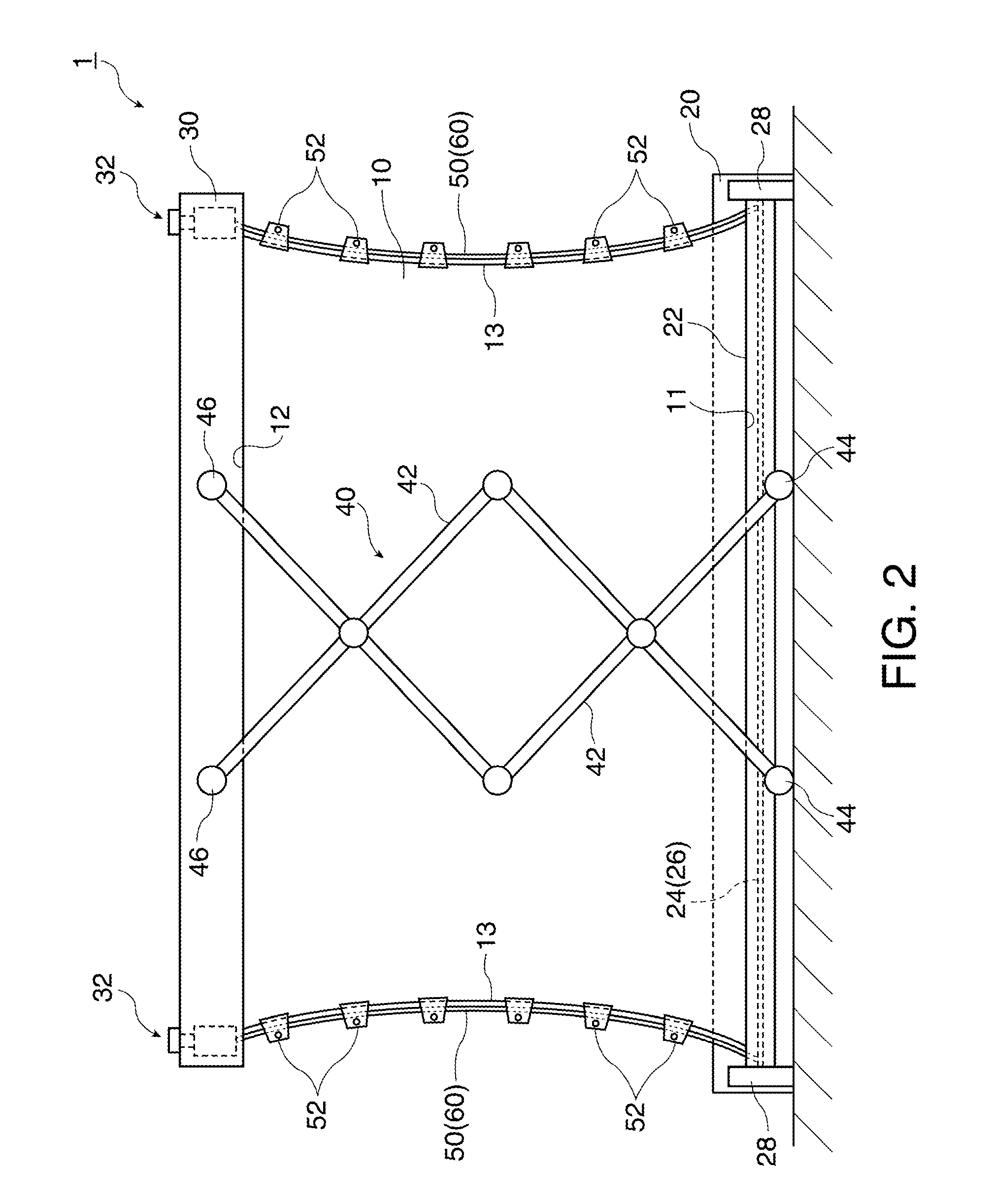Screen unit
a screen unit and screen technology, applied in the field of screen units, can solve the problems of deteriorating the appearance of the screen in the expanded condition, increasing the size of the screen unit, and damage to the screen, so as to reduce the steps produced by the steps of the string-shaped members and reduce the deformation of the base material of the screen. the effect of the step reduction
- Summary
- Abstract
- Description
- Claims
- Application Information
AI Technical Summary
Benefits of technology
Problems solved by technology
Method used
Image
Examples
first embodiment
[0026]The general structure of a screen unit according to a first embodiment is now described. FIGS. 1 and 2 illustrate the general structure of the screen unit in the first embodiment. More specifically, FIG. 1 schematically illustrates the screen unit in the expanded condition as viewed from the front, and FIG. 2 schematically illustrates the screen unit in the expanded condition as viewed from the back. In FIG. 2, a storing portion 20 is shown in perspective.
[0027]FIG. 3 schematically illustrates ends of a wire and a winding shaft. FIG. 4 schematically illustrates a fixing portion of a supporting portion. FIG. 5 schematically illustrates an enlarged area around a connecting member. While each of FIGS. 3, 4, and 5 shows only one of both ends of the screen unit 1 in the left-right direction, the other end has the same structure as that shown in the figures.
[0028]As illustrated in FIG. 1, the screen unit 1 in the first embodiment includes a screen 10, the storing portion 20 having a...
second embodiment
[0064]A screen unit according to a second embodiment is now described with reference to the drawings. FIG. 6 illustrates the general structure of the screen unit in the second embodiment. More specifically, FIG. 6 schematically illustrates the screen unit in the expanded condition as viewed from the front.
[0065]The structure of the screen unit according to the second embodiment is similar to that of the screen unit in the first embodiment except for the construction and position of the cushioning members. The same reference numbers are given to components common to those in the first embodiment, and the explanation of the common components is not repeated.
[0066]As illustrated in FIG. 6, a screen unit 2 in the second embodiment includes the screen 10, the storing portion 20 having the winding shaft 22, the supporting portion 30, the coupling mechanism 40, a pair of the wires 50, the plural connecting members 52, and a pair of cushioning members 62.
[0067]The respective cushioning memb...
modified example 1
[0085]According to the screen unit 2 in the second embodiment, the cushioning members 62 are disposed on the front side of the screen 10. However, the cushioning members 62 may be provided on the back side of the screen 10, or on both the front side and the back side of the screen 10. The cushioning members 62 may be fixed to the wires 50 and the plural connecting members 52.
PUM
 Login to View More
Login to View More Abstract
Description
Claims
Application Information
 Login to View More
Login to View More - R&D
- Intellectual Property
- Life Sciences
- Materials
- Tech Scout
- Unparalleled Data Quality
- Higher Quality Content
- 60% Fewer Hallucinations
Browse by: Latest US Patents, China's latest patents, Technical Efficacy Thesaurus, Application Domain, Technology Topic, Popular Technical Reports.
© 2025 PatSnap. All rights reserved.Legal|Privacy policy|Modern Slavery Act Transparency Statement|Sitemap|About US| Contact US: help@patsnap.com



